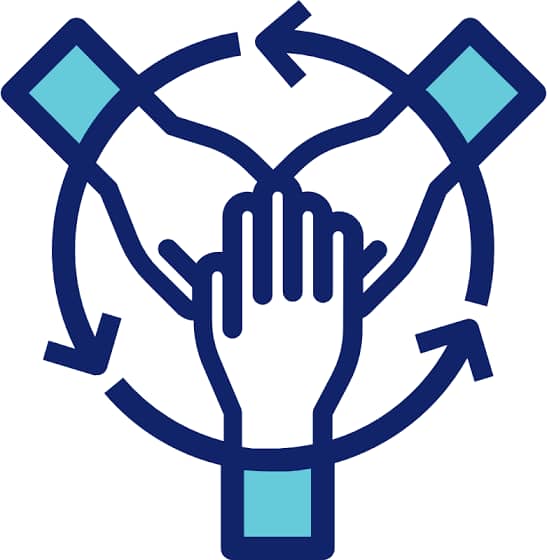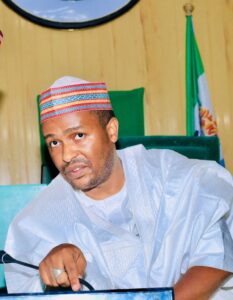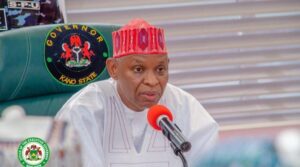Feature: Youth Development in Nigeria: Faults, Issues And Possibilities

Feature: Youth Development in Nigeria: Faults, Issues And Possibilities
BY: EHIDIAMEN EMMANUEL
“The power of youth is the common wealth for the entire world. The faces of young people are the faces of our past, our present, and our future. No segment in the society can match with the power, idealism, enthusiasm, and courage of the young people.” The foundation of every successful nation is in its youth.
The level of youth development and empowerment a Nation makes is a good indication on the future of that nation. A nation aiming at economic and social stability would take into great consideration the empowerment of its youths and young adults. The young population is the heart of any society’s human capital. Young people are people living in the most beautiful age of their lives, from 15 to 35 years old.
Youth is characterized by dynamism, energy and curiosity necessary for social development. Youth development and empowerment is important as it aids in harnessing societal peace and progress.
According to the 2020 Global Youth Index which measures youth status, Nigeria has been ranked 161st out of 181 countries, placing the nation among one of the worst nations with Youths that aren’t well empowered or developed.
Nigeria ranks seventh on the world index of most populated countries, with a population estimated at over 200.3 million people in 2019. Out of this number, 40.3 million people, representing 19.8% of the entire population are youth. This figure alone is larger than the population of 199 countries of the world, making youth development a serious national concern. These figures show that our society is in grave danger of collapse if the stakeholders do nothing to avert this ugly trend. The analysis indicates that the greatest threat to our societal growth is our laxity towards youth development.
Different government tenures have set up several bodies and organizations to aid in the development of youths in this country. In 1964, the National Youth Council was established.
The prominent National Youth Service Corps (NYSC) was established in 1973, which is still active until date and has integrated Thousands of Youth into the scheme that lasts for 1 year. Upon return to Civilian rule in 1999, President Obasanjo established a new draft for the establishment of the National Youth Policy and Strategic Plan of Action in 2001. This led to the re-establishment of the Federal Ministry of Youth in 2007.
Furthermore, the Obasanjo administration introduced the National Poverty Eradication Programme (NAPEP) which was saddled with the responsibility for coordinating and monitoring all poverty eradication schemes in Nigeria. President Goodluck Jonathan’s administration set up the Youth Enterprise with Innovation in Nigeria (YouWin) in 2011. YouWin was a contest that rewards the most promising business ideas with funding targeted at promoting the spirit of entrepreneurship and business development among Nigerian youths.
In 2015, when President Muhammadu Buhari led administration came to power, it introduced N-Power, which has his administrative commitment to empower and create job opportunities for the teeming population of youth in Nigeria. It currently estimates over 500,000 beneficiaries as its beneficiary on its official websites as of August 2020.
Despite all these governments intervention, youth development and general standard of life for the average youth in this country is still at a minimal level. Why? Youth development goes beyond job creation. It is a process that guides young people towards their potential for discovery, development and implementation. If before the youth development program you already know exactly what they will become after training, it means that they already have many limitations.
What you are doing is no longer youth development but professional training. The essence of youth development is to reveal the hidden solutions that youth hide within themselves. Discovery is fundamental if training is to be appropriate to the potential development of young people.
In developing youths, one important measure that needs to be taken has to be the inclusion of Youths in the government decision and policymaking. Youth policies in the nation will continue to fall short of expected standards if the input of young people in governance is continually neglected. It is in the light of this reality that the late UN secretary, Koffi Annan maintained that “Young people should be at the forefront of global change and innovation. Empowered, they can be agents of development and peace.
If, however, they are left on society’s margins, all of us will be impoverished. Let us ensure that all young people have every opportunity to participate fully in the lives of the societies.” The interests of young people are often ignored in public policy in favor of the interests of more powerful interest groups. It is not necessarily that young people’s well-being is being deliberately ignored, but because their voices are not heard and the impact of government policies on their lives is discussed in decision-making forums, their concerns never rise to the top of the political agenda.
Next measure of developing and empowering the youths should be through pursuing youth empowerment ideas in high-impact areas of the economy sector. The ever-increasing population in Nigeria suggests that food security is an important area of concern.
Inarguably, Agriculture will remain the largest employer of labour for a long time and, unless growth in the nonagricultural sector becomes highly labor-intensive, employment in agriculture is expected to increase. Moreover, imparting technological consciousness in the Nigerian youth is a means of achieving sustainable development. Nigeria cannot talk about sustainable development without a sound acquisition and nurturing of science and technology. Therefore, the Ministry of Youth and Sports Development should steer the government to focus her attention on pursuing youth employment policies along these lines.
One of the most alarming trends in Nigeria is the lack of political will to consistently enforce the implementation of written policies and decisions. The presence of a large proportion of young people in Nigeria who are energetic and eager to improve their lives should reinforce the belief that youth are an indispensable asset for national development. There is therefore a need to develop more robust, inclusive policies and action plans for young people so that they have the right to take a more active role in shaping the future they will inherit.
We must rethink our approach and our shared commitment to the development of our youth to avoid the cost of underdeveloped youth to our shared future.





